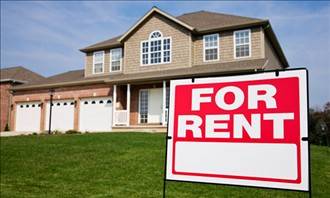Moderately Priced Condos/Townhouses Led the Market
Frank Schliewinsky
Other
November was “buy a condo month” in Vancouver. It was almost as if after having read the news that the Vancouver housing market was “frothy” and at the “lower end of balanced”, that buyers said, “Don’t know what that means but sounds good to me. Time to buy a cheap condo.” November sales, especially high rise sales, beat expectations and were up in many markets with the demand being for smaller, less expensive units.
Interestingly, the markets with the biggest declines in average MLS high rise selling price in November were Downtown and Westside Vancouver and Richmond. And Richmond didn’t have much of an increase in sales. So what’s this all mean? Are Chinese buyers no longer snapping up trophy properties? Have buyers realized that smaller, less expensive units actually have a resale market? Or perhaps buyers are just playing catch-up after staying out of the market for a few months?
November MLS high rise sales picked up sharply in several markets, making up for lacklustre sales over the past couple of months. Sales were up in Downtown Vancouver, Westside Vancouver, Burnaby and Coquitlam-Port Moody-PoCo. Buyers in these markets tended to focus on lower priced listings and as a results average MLS selling prices were down sharply in several markets. However, MLS high rise sales in Richmond didn’t follow other markets. Richmond buyers also focussed smaller, less expensive units but sales volumes were up only marginally from previous months.
About 440 high rise units sold on MLS in November. This was up from 285 sales in October. Year-to-date MLS high rise sales are now 8% higher than for the same period in 2010. The average selling price for MLS high rise units in November was $501,000 or $568 psf. This actually down by 2% from 12 months ago.
With the addition of November sales, sales of smaller high rise condos under 700 square feet and less than $350,000 made up 30% of total MLS high rise sales over the past three months. Only 20% of active listings are in this size range.
MLS low rise sales also picked up in November but not as much as high rise sales. Total MLS low rise sales for the month were close to 445 units; up from 340 units in October and up from 360 sales 12 months ago. Year-to-date MLS low rise sales are now 5% higher than for the same period in 2010.
The average MLS selling price for low rise condos also didn’t change much from previous months. Overall average selling price in November was $329,000 or $367 psf. This is up by 6% from 12 months ago. The average list price in November was $298,000 or $323 psf suggesting that low rise buyers aren’t totally motivated by price alone.
Small low rise units under 600 square feet in size are not in great demand. Only 7% of MLS low rise sales over the past three months were in this size range. Most low rise buyers are looking for product in the $250,000 to $350,000 price range and this means units in the 600 to 1,000 square foot range.
November MLS sales of townhouse condos were also better than expected. Total sales were close to 370 units; 100 sales more than in October and about 100 better than 12 months ago. Sales in North Surrey, Richmond and Coquitlam-Port Moody-PoCo were all up in the past month while average selling prices remained steady or declined slightly. Year-to-date MLS townhouse sales are now 1% ahead of the same period in 2010.
The overall average MLS selling price for townhouse condos in November was $466,000 or $304 psf; down from an average price of $486,000 in October and up by only 2% from 12 months ago. Most of the demand for MLS townhouses continues to be for product in the 1250 to 1750 square foot range priced under $500,000.
© 2011 REW. All rights reserved.


